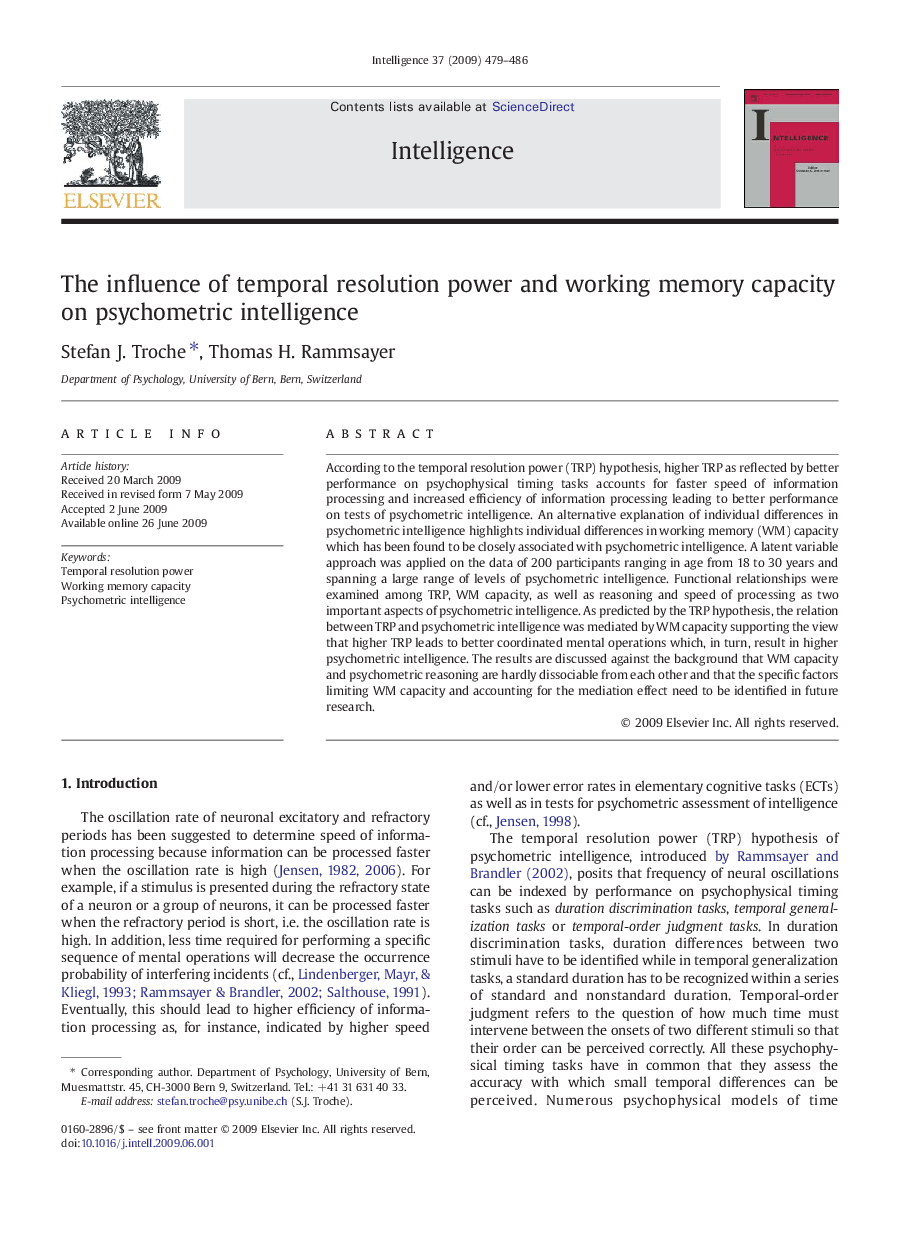| Article ID | Journal | Published Year | Pages | File Type |
|---|---|---|---|---|
| 929488 | Intelligence | 2009 | 8 Pages |
According to the temporal resolution power (TRP) hypothesis, higher TRP as reflected by better performance on psychophysical timing tasks accounts for faster speed of information processing and increased efficiency of information processing leading to better performance on tests of psychometric intelligence. An alternative explanation of individual differences in psychometric intelligence highlights individual differences in working memory (WM) capacity which has been found to be closely associated with psychometric intelligence. A latent variable approach was applied on the data of 200 participants ranging in age from 18 to 30 years and spanning a large range of levels of psychometric intelligence. Functional relationships were examined among TRP, WM capacity, as well as reasoning and speed of processing as two important aspects of psychometric intelligence. As predicted by the TRP hypothesis, the relation between TRP and psychometric intelligence was mediated by WM capacity supporting the view that higher TRP leads to better coordinated mental operations which, in turn, result in higher psychometric intelligence. The results are discussed against the background that WM capacity and psychometric reasoning are hardly dissociable from each other and that the specific factors limiting WM capacity and accounting for the mediation effect need to be identified in future research.
